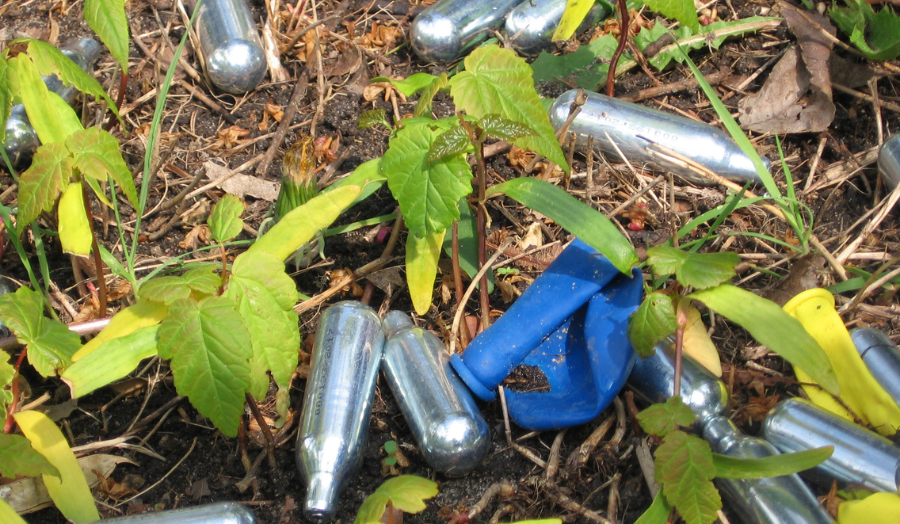Dr James Morgan, course leader for Criminology and Psychopathology MSc, discusses the efficacy of the Home Office’s new laws on nitrous oxide.
Date: 20 November 2023
On the 8th of November 2023 it became a criminal offence to be in possession of nitrous oxide, also known a laughing gas, in the context of it recreational use. The placement of this drug into the Misuse of Drugs Act as a class C drug, has brought some considerable controversy. By being placed in Class C, those found in possession of the drug could in theory (although it is very unlikely in practice) be sentenced to up to two years in prison, while those supplying the drug could receive a prison sentence of fourteen years. The drug creates short lived euphoric effects in recreational users, and is also used as an anaesthetic during child birth and in catering, most often for whipping creme adding froth to your coffee.
The Anti-social Action Plan, published by the Home Office noted children’s playgrounds littered with used canisters, while also noting that groups of young people seen inhaling the drug can be intimidating, a claim repeated on the Tower Hamlets local authority website. The Home Office also note, using data from the Crime Survey for England and Wales, that since 2012 Nitrous Oxide is the third most used drug, after Cannabis and Cocaine. We must presume that the definition of ‘drug’ being used an illegal status rather than reflecting psychoactive affects, since caffeine, nicotine and alcohol are all far more popular, with the latter drug especially having a very strong relation to anti-social behaviour.
While there have been debates over the health implications of recreational nitrous use, and this webinar that I hosted is useful for understanding them, the focus of the legal change relates to anti-social behaviour. In their report the Advisory Council on the Misuse of Drugs, an independent expert body who advise the government, said there was little evidence connecting Nitrous use to criminal or anti-social behaviour. Some may point to the very visible littering related to careless disposal of the metal canisters from which nitrous is often dispensed. Indeed, the Royal Borough of Kensington and Chelsea reported that following Notting Hill Carnival thirteen tons of used nitrous canisters were cleaned up off the street. However, this very real littering issue does not require the drug to be criminalised further, since the littering itself is already illegal and simply requires enforcement from the authorities.
This might be the most crucial part of the debate. Even if classifying nitrous under the misuse of drugs act has justifiable aims it requires police resources to enforce, and any Londoner who’s hoped for the theft of their bicycle to be investigated knows that police's resources are extremely stretched. There could also be negative impacts to criminalising possession and sale of nitrous as there is a danger that organised crime pick up the baton in terms of distribution, or that thefts of large nitrous canisters from hospitals and dentists increase. The heightened penalties could also deter users of nitrous from seeking drug treatment or discussing resulting health issues with a doctor. It is also unclear how the police and courts can be sure that possession or sale of nitrous is for legitimate use in catering, or illegal use for pleasure. Overall, while the connection between anti-social behaviour and nitrous oxide use can be debated, we must wait to see whether the change in the law results in positive changes, negative changes, or no change at all.

